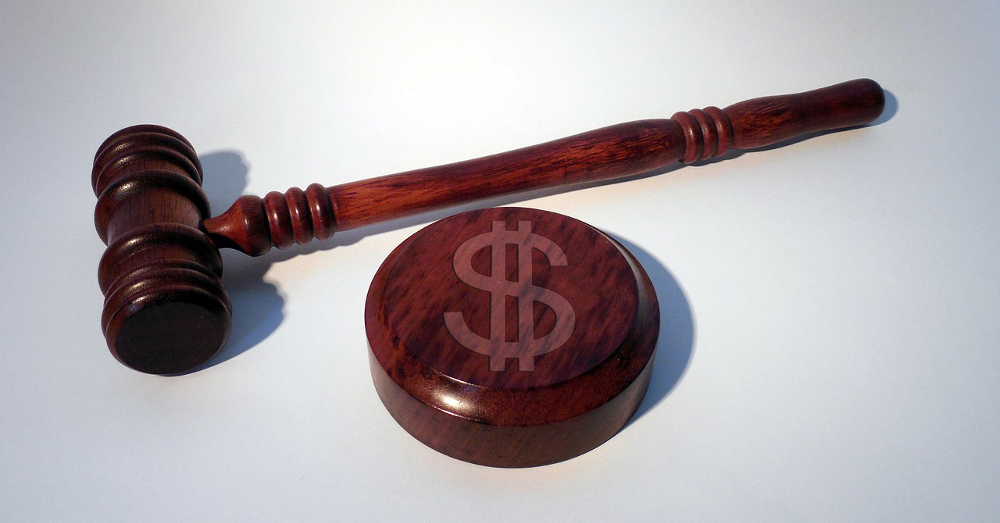
Smoking Gun on EPA’s Secret Collaboration With Monsanto
The U.S. Environmental Protection Agency (EPA) is once again facing scrutiny over its dealings with Monsanto, the maker of Roundup herbicide.
January 31, 2017 | Source: Mercola.com | by Dr. Joseph Mercola
The U.S. Environmental Protection Agency (EPA) is once again facing scrutiny over its dealings with Monsanto, the maker of Roundup herbicide.
In 2015, glyphosate, Roundup's active ingredient, was determined to be a "probable carcinogen" by the International Agency for Research on Cancer (IARC), which is the research arm of the World Health Organization (WHO).
The EPA, rather than taking immediate steps to protect Americans from this probable cancer-causing agent, decided to reassess its position on the chemical and, after doing so, released a paper in October 2015 stating that glyphosate is not likely to be carcinogenic to humans.1
In April 2016, the EPA posted the report online, briefly, before pulling it and claiming it was not yet final, and had been posted by mistake.
The paper was signed by Jess Rowland (among other EPA officials), who at the time was the EPA's deputy division director of the Office of Chemical Safety and Pollution Prevention and chair of the Cancer Assessment Review Committee (CARC).
This is notable because Monsanto is currently embroiled in a number of lawsuits, including litigation from more than 50 people who claim exposure to Roundup caused them to develop non-Hodgkin's lymphoma (NHL).
Monsanto has used the EPA's supposedly-not-final report in court hearings to suggest glyphosate is safe, and now the plaintiffs' attorneys are asking for documents detailing Monsanto's interactions with Rowland to be released.
EPA, Monsanto Refuse to Lift Seal on Controversial Documents
In a review published in the Journal of Epidemiology & Community Health, a team of scientists thoroughly reviewed the research behind the IARC's glyphosate/cancer ruling, noting an association between glyphosate and non-Hodgkin's lymphoma was found based on available human evidence.2
Associations between the chemical and rare kidney tumors, genotoxicity and oxidative stress and even DNA damage in the blood of exposed humans were also revealed.
But industry is working hard to ensure that any science and other evidence not on their side is overlooked, including allegations that Monsanto has long known glyphosate causes cancer and spent decades covering it up.
Toward that end, the attorneys for the plaintiffs in the NHL lawsuit asked to depose Rowland and unseal documents detailing Monsanto's relationship with the former EPA official (curiously, he left the EPA shortly after the CARC paper was taken down from the EPA's website).
While Monsanto released 6 million pages of documents, 85 percent of them were marked as "confidential," which means important data is blacked out during court filings and not viewable to the public. According to The Huffington Post:3
"The lawyers say that the documents obtained through discovery show that 'Monsanto has been confident all along that EPA would continue to support glyphosate, whatever happened and no matter who held otherwise.'
According to the court filings by plaintiffs' attorneys, the documents show 'it is clear that Monsanto enjoyed considerable influence within the EPA's OPP [Office of Pesticide Programs], and was close with Mr. Rowland …
The documentary evidence strongly suggests that Mr. Rowland's primary goal was to serve the interests of Monsanto.'
… [A]long with Monsanto's objection to releasing the documents that relate to its conversations with Rowland, the EPA has specifically refused the deposition request, saying it would 'not clearly be in the interests of EPA' to allow attorneys to question Rowland about the cancer review and interactions with Monsanto."
Monsanto Sues the State of California
While the EPA seems to be treading water (and even backpedaling) rather than moving forward to stop the unchecked use of glyphosate-based products in the U.S., California's Environmental Protection Agency's Office of Environmental Health Hazard Assessment (OEHHA) announced in 2015 that they intended to list glyphosate as a chemical known to cause cancer under Proposition 65, which requires consumer products with potential cancer-causing ingredients to bear warning labels.
Rather than label their products sold in California as likely carcinogenic, most companies reformulate their product ingredients so as to avoid warning labels altogether, and most did this on a national scale, not just in California.
Monsanto, however, is trying a different strategy. They filed formal comments with OEHHA saying the plan to list glyphosate as a carcinogen should be withdrawn. Their reasoning was that California's actions could be considered illegal because, Monsanto claimed, they were not considering valid scientific evidence.4
The comment was slipped in on the final day the state accepted public comments, perhaps because Monsanto was trying not to attract too much fanfare to their attempts to keep people in the dark about their carcinogenic product.
In January 2016, Monsanto took it a step further and filed a lawsuit against OEHHA to stop the glyphosate/cancer classification, calling it unconstitutional because OEHHA "delegated law-making authority 'to an unelected and non-transparent foreign body [IARC] that is not under the oversight or control of any federal or state government entity,'" EcoWatch reported.5
OEHHA has filed a motion to dismiss the lawsuit, EcoWatch continued, stating "IARC's scientific determinations are 'the gold standard in carcinogen identification,' and are trusted and relied upon by state governments, the federal government and foreign governments alike."6
Whether the case is dismissed or allowed to proceed could have major implications not only for Monsanto but also for the classification of cancer-causing chemicals moving forward.
